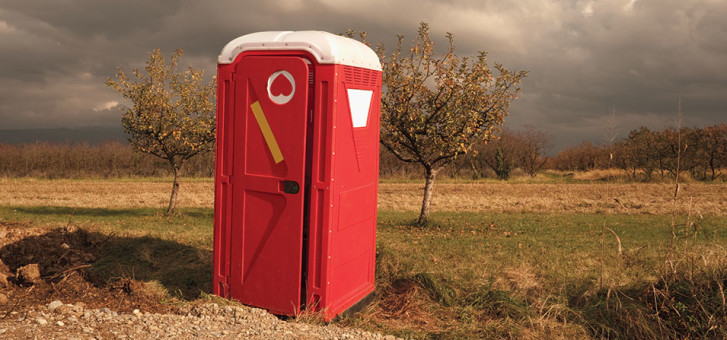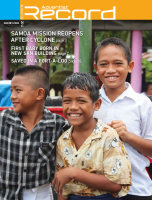I was working as a carpenter at a large construction site in Hobsonville, in Auckland's northwest. Although I was a supervisor responsible for up to five men, my position didn’t save me from ongoing jibes and derision. The hard drinking, womanising stereotype of construction workers is essentially accurate, and I was different. Although I was raised in a Christian home, I wasn’t interested in church, but went along to please my mum and dad. When I left home, church attendance naturally stopped, but I never totally shed its influence. Sometimes I’d try to fit in at work and swear like the other guys, but it was an act and they saw through it.
When I met my wife Caroline I started attending church again, but it remained a nominal Christianity. However when our second son was born, I resolved to become more serious about being a Christian, even making the decision to stop working on Sabbath, a choice that only increased the jokes at my expense.
The morning of December 6, 2012, came like any other, with a forecast of rain but nothing unusual for north New Zealand around Christmas. Just after midday on that December afternoon, my team and I looked towards the Whenuapai airbase, further to the west. The clouds were black and the rain was storming towards us in a half circle, not actually raining on site but all around us in this curve of torrential rain. Heavy rain, that’s what I thought, just some real heavy rain. But our head supervisor yelled: "Run, find cover." We dropped our gear, shedding our heavy tool belts, and took off for cover; four of us big Kiwi blokes somehow squashing ourselves into a plastic port-a-loo, about a metre square.
Closed off from what was happening outside, it was as if we were in a plane coming in for landing—everything jolting and roaring, the force of the wind propelling sand and rain in through the narrow gap around the door. It felt like we were in a sheet of tin, held up and waved up and down until it ripples. I told the guys to brace the walls with their hands. I thought of my kids, of Caroline. "God, look after them," I prayed. I’d never been so scared in all my life. By their faces and their words, I could tell the others felt the same. Murmurs of "please . . . please" and "oh, no, no".
For a second it seemed to ease. One of the guysopened the port-a-loo door a crack. Slab mats of steel mesh—made up of 300 to 400 steel reinforcing bars used to strengthen concrete when it’s laid—were heaving like a Mexican wave, then picked up as if by some giant hand and hurled towards us. We slammed the door shut. Then things got worse.
The noise of the torrential rain was swallowed up by the wind. The only sounds making it above that roar were shattering glass and crashing timber. We were so tossed about inside, it felt like we were about to lift off. All the time mud, rain and grit kept surging in through the thin line around the door, coating us, getting into our eyes, ears and nostrils.
Finally the noise lessened, the force against the walls eased and the port-a-loo stopped shaking. It seemed like ages had passed since we'd crammed ourselves into that tiny plastic box, but later we were told it only lasted a couple of minutes. We just wanted out.
Drenched and swathed in mud and sand, yet without a single injury, we came out into a drastically altered workplace. Stacks of timber and steel mesh, even vehicles, were jumbled about and smashed. Two-storey high block walls, fortified with the steel reinforcing bars and filled with concrete, had been cracked and pushed up to 15 millimetres from their original location. Homes in a residential area a few hundred metres away had roofs ripped off and windows blown in. A normal storm couldn't wreak this much damage; this was a full blown tornado!
As we headed for the emergency assembly point, we assisted anyone needing our help. Workmen had been stranded on the roof, harnessed to the building without any protection, and bearing the full brunt of the tornado. One had been thrown down and was badly cut up. The others couldn’t use the damaged harnessing equipment, and had to hug the steel pillars and slide down. Two of our leading hands had taken refuge in a port-a-cabin, but the tornado had wrenched it free and rolled it over and over and over, the men ending up in hospital in neck braces.
Then we heard that three men had died. A driver sheltering in the cab of his truck was crushed when a towering concrete panel crashed down, yet the man in the passenger seat beside him survived. Two others who were sheltering next to the truck, also died under the same concrete monolith. I recognised the names of two of them. They weren’t from the company I was employed with, but I had worked beside them; I knew them. It was hard to believe.
When attending their funerals a few days later, I couldn’t help but think this could have been my wife, my family, attending my funeral. A concrete slab had flattened a truck, yet the four of us in a flimsy plastic port-a-loo came out unscathed. Lucky, grateful, blessed; we couldn’t stop talking about it. We had the time to talk—no-one was allowed to leave until everyone was accounted for and the all-clear given. The worksite was blocked off to all except emergency services and, of course, TV news reporters looking for interviews.
When the rain started to pelt down again there was talk of another possible tornado. I just wanted to get home and hug my wife and kids.
It took more than two hours before management finally gave us permission to go. I immediately headed for the carpark, with its collection of damaged and rearranged vehicles. Bulging from the shattered front windscreen of my van was a large metal clothing bin, the type charity organisations use, carried from more than 600 metres away. With some help I was able to extract it, and I drove home without a windscreen. The surrounding roads, including the main north-western motorway route, were closed. I had to take the long way home.
Once home, I called Caroline. She’d heard about the tornado at Whenuapai, but in her mind I wasn’t anywhere near that particular area. At first, she found the idea of four hefty guys jammed together in a tiny port-a-loo funny, until she realised the seriousness of what had happened. Shocked, she said she would pick up the boys and come straight home. Because of the closed and congested roads it took her one-and-a-half hours. During that time I waited, watching the TV news coverage in a kind of surreal daze, looking forward to seeing my family.
More than ever I was grateful for what I had—grateful to be alive.
It played over and over in my mind: four of us saved in a port-a-loo. I wasn’t the only one thinking this way either.
That night, one of the three workmates who had sheltered with me, a professed atheist, one who had always given me a particularly hard time, sent me a text message. He called me Moses—without meaning it as an insult.
"Moses, I think your God was watching over us today.
The more I think about it bro. We were in a port-a-loo, a **** port-a-loo! Brick walls fell over, rebar mats were flung like paper, and us four were hiding in a port-a-loo. Our mates were flipped four times in a port-a-cabin and we managed to stay safe in a port-a-loo. I don’t think I’ll ever forget that. Much love to you and your God."
He then asked if there was anything he should do. I texted back: "Say a prayer of thanks."
His response was, "Bro, I’ll do that for us. Is there anything in particular I should say?"
I told him, "Just thank Him from your heart."
That night Caroline and I got down on our knees and did just that.
Bryan Townsend-Pritchard, as told to Pam Driver.


